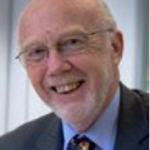Blog
Competition in Railways
Roger Vickerman
21 June 2018

Roger offered his great expertise within transport economics as moderator of a panel discussion entitled “Does competition benefit passengers?” at the 6th International Railway Summit in Prague.
For most of the period since the Second World War, up until the end of the twentieth century, railways in Europe were largely provided by state-owned operators. During almost all of this period these railways were in decline in terms of both passengers carried and freight moved. There were bright spots, such as the introduction of high-speed services, but largely rail was squeezed between road for shorter journeys and air for longer journeys.
Since the turn of the century the picture has changed to a degree. Encouraged by the privatisation of the railways in Japan, and then in Britain, the European Union embarked on a series of four railway packages all designed to introduce competition. The main elements of these various packages were: to separate track and operations so that there was transparency in track access charges; to allow for competition in the provision of rail services, either through open access or through competitive tendering; to open up national markets to foreign operators.
The 6th International Railway Summit in Prague in February 2018 offered an ideal opportunity to reflect on the degree of success of these changes. Bringing together a panel from the European Commission, the Community of European Railways, UK passenger and freight operators, and both the incumbent national operator and an open access entrant in the Czech Republic, this allowed for a comparison between different ways the packages have been implemented.
Although the headline message has been one of success in helping towards the revitalisation of railways, not least through greater levels of investment than had been possible by state-owned railways, it has become clear that there remain many difficult areas that constrain rail from being able to compete on a level playing field with other modes of transport.
Open access operators providing direct competition on the track still face problems of getting that access when slot allocation remains largely dominated by incumbent operators. Even where slots are obtained such operators may find it challenging to secure exposure on online ticketing sites. Franchised operations continue to run the risk that, in order to gain a franchise, potential operators are encouraged to overbid and then run into difficulties if projected traffic increases do not materialise – an outcome known as “the winner’s curse”.
Freight operators continue to find themselves behind passenger operators in the fight for access to networks. Whilst international passenger traffic has benefited, largely through the setting up of specialised operators providing through services, international freight has remained less well integrated. The opening up of national markets to competition from foreign operators has had mixed success.
The conclusion must be that although much progress has been made and there are undoubted successes, this progress remains patchy across Europe. State supported incumbent operators remain dominant in most countries and rail’s market share remains disappointingly low despite the growth of traffic. Often competition has introduced confusion for passengers, compounded by the lack of integrated ticketing.
Perhaps the main lesson for policy makers is that simply introducing competition in one transport mode does not level the playing field for competition with other modes and may, in some cases, actually hinder it.
Category: Blog Competition
Tags: freight operators public transport rail rail operators
About the author

Roger Vickerman is Emeritus Professor of Economics at the University of Kent, UK. He has written extensively on many aspects of the economics of transport and been an advisor to the UK Government, European Commission and regional and national governments around the world. He was formerly Editor in Chief of Transport Policy and was awarded the Jules Dupuit prize of the World Conference on Transport Research in 2016 for his lifetime contribution.